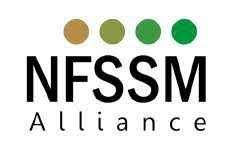The desludging operators in Tamil Nadu’s Tiruchirappalli district have joined hands to form a Desludging Operators Federation to help address the growing need for scheduled cleaning of septic tanks in the region. The Federation, currently joined by 43 Desludging Operators, owning around 72 desludging tankers that will help in expediting septic tank cleaning operations for more than 2,74,538 households in the district. Desludging is the process of removing the layers of scum and sludge from the septic tank, which in turn promotes the usage of technology in sanitation and helps ensure safety of sanitation workers. A better system of FSSM is essential to ensure citywide inclusive sanitation. Public health and a clean environment depend highly on the safe management and treatment of faecal sludge. While Faecal Sludge Treatment Plants are necessary to ensure the safe disposal and treatment of faecal sludge, the maximum utilization of their capabilities can only be achieved through regular desludging. Citizens are now better aware of the need for desludging. Growing awareness alongside a rise in population has resulted in Tiruchirappalli witnessing a substantial surge in septic tank cleaning vehicles. – from around 6
trucks to 70 trucks in 8 years. To streamline addressal of rising desludging queries from the populace, a collaborative approach was required to provide an effective solution to manage the entire sanitation value chain in the district. This is where the Federation stepped in to help with better delegation of
desludging requests to the operators along with standardization of rates. In the 14th edition of the Dasra Philanthropy Week, leading experts in sanitation and community-based
leaders came together to discuss the role played by communities in ensuring safe and inclusive sanitation. Community-led solutions in sanitation help drive holistic impact. Community-based models and practices are a learning model with a potential to be adopted in newer geographies. Karuppaiya, a desludging operator from Trichy who initiated the formation of the Federation, recounted, “Our larger goal is streamlining the sanitation work in our region. We are happy to ensure parity among operators and use a collaborative approach for long-term results in the sector. Everyone came together to ensure that we came up with implementable solutions that led to better accountability and better sanitation services. More than a profession, we are pursuing this as a service to our people and the sanitation sector. There have been instances we did not charge money for the service we have delivered, like a query from a disabled person or an ultra-poor family living in slum area. Our vision is to nurture models which contribute to the entire sanitation value chain.”
Indian Institute for Human settlements, a member of the National Faecal Sludge and Septage Management (NFFSSM Alliance) has supported desludging operators in Tiruchirappalli to strengthen their operations and business models. Kavita Wankhade, Head – Practice (Governance & Services) at the Indian Institute for Human Settlements (IIHS), said,“Our focus is on the capacity building of sanitation workers across the value chain and to ensure Occupational Health and Safety of the workers. Delegating work systematically helps streamline the queries for faster delivery of services. We have been working closely with the sanitation workers and desludging operators to provide them training. Steps like the formation of the desludging operator's federation will certainly help in systematizing the sector to help both workers and citizens.” Suggested quote: “Our focus is on improving overall well-being and occupational safety of sanitation workers across the value chain. In Tamil Nadu there is vibrant private de-sludging market. We have worked with the government to ensure light touch regulation to streamline the service. We are working with desludging operators for its implementation by training them on first aid, safety and standard operating procedures. Steps like formation of desludging operator’s federation can help them to move towards the rights and working conditions they deserve.” About NFSSM Alliance The National Faecal Sludge and Septage Management (NFSSM) Alliance, a national working group, comprises 30+ organisations and individuals across India. Supported by the Bill and Melinda Gates Foundation, the NFSSM Alliance was convened in January 2016, with a mandate to build consensus and drive forward the discourse on faecal sludge and septage management (FSSM) in India. The Alliance works in collaboration with the Ministry of Housing and Urban Affairs (MoHUA) and the Department of Drinking Water and Sanitation (DWS), under the Ministry of Jal Shakti, which are the central ministries responsible for sanitation in India.



